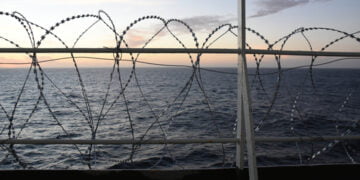North P&I Club warns of a ‘raft’ of new shipping regulations on cyber risks
The North P&I Club says shipowners and operators should be prepared for a new 'raft' of regulations relating to cyber security. As well as compromising vessel safety, a lack of on-board firewalls and other cyber security measures could soon expose shipowners to heavy fines and penalties, according to an article co-authored with Clyde & Co partner Joe Walsh in the latest issue of the Club's loss prevention newsletter Signals.Norths deputy director of loss prevention Colin Gillespie says, The safe operation of ships is increasingly dependent on sophisticated electronic systems, so it is vital these systems are properly secured and protected from external risks. According to the Club, the US Coast Guards new cyber strategy also looks set to be a catalyst for new national and international regulations relating to cyber security on ships. The US Coast Guard published its cyber strategy in June this year in response to what it perceives is one of the most serious threats to US economic and national security interests, says Gillespie. The International Maritime Organization has also now recognised the threat to global maritime safety and commerce, and is expected to review industry guidelines at it maritime safety committee in May next year. Gillespie ...
Read moreDetails

























































